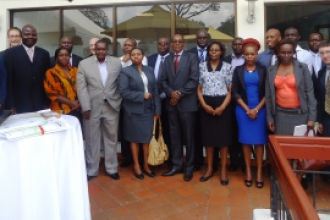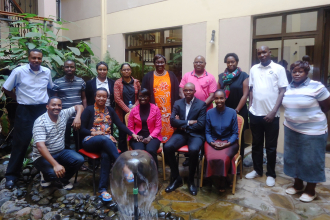Strategic Environmental and Social Assessment of REDD+ Improve Forest Governance
Forest tenure reforms are occurring in many developing countries around the world. These reforms typically include devolution of forest lands to local people and communities, which has attracted a great deal of attention and interest. While the nature and level of devolution vary by country, all have potentially important implications for resource allocation, local ecosystem services, livelihoods and climate change.
Local Community Participation under Reformed Forest Management in Kenya: Lessons and Policy Implications
Forest tenure reforms are occurring in many developing countries around the world. These reforms typically include devolution of forest lands to local people and communities, which has attracted a great deal of attention and interest. While the nature and level of devolution vary by country, all have potentially important implications for resource allocation, local ecosystem services, livelihoods and climate change.

EfD Kenya held Water Policy Day
The Environment for Development (EfD) housed by the School of Economics University of Nairobi on Monday 27th October held a Water Policy Day at the Sarova Panafric Hotel Nairobi to share and receive…
Understanding the adoption of a portfolio of sustainable intensification practices in eastern and southern Africa
This paper explores smallholder farmers’ adoption decisions of multiple sustainable intensification practices (SIPs) in eastern and southern Africa. The authors develop a multivariate probit model using plot-level data gathered from maize–legume farming systems in Ethiopia, Kenya, Malawi, and Tanzania.
Forest Tenure Reform in Asia and Africa: Local Control for Improved Livelihoods, Forest Management, and Carbon Sequestration
Forest tenure reforms are occurring in many developing countries around the world. These reforms typically include devolution of forest lands to local people and communities, which has attracted a great deal of attention and interest. While the nature and level of devolution vary by country, all have potentially important implications for resource allocation, local ecosystem services, livelihoods and climate change.
Non-parametric Estimation of Environmental Efficiency Using Data Envelopment Analysis and Free Disposable Hull
Strategic Performance Management and Measurement Using Data Envelopment Analysis highlights the advantages of using DEA as a tool to improve business performance and identify sources of inefficiency in public and private organizations. These recently developed theories and applications of DEA will be useful for policymakers, managers, and practitioners in the areas of sustainable development of our society including environment, agriculture, finance, and higher education sectors.
The Environment for Development Initiative: lessons learned in research, academic capacity building and policy intervention to manage resources for sustainable growth
This article reviews the history of the Environment for Development (EfD) initiative, its activities in capacity building and policy-oriented research, and case studies at its centres in Chile, China, Costa Rica, Ethiopia, Kenya, South Africa and Tanzania.

Grant Management Training in Nairobi
Staff from EfD Kenya and the School of Economics recently attended a training on Grant Management offered by Capacity Africa Training Institute. Mr. Matthew Nyamu and Ms. Maimuna Kabatesi attended…
Pagination
- Previous page
- Page 13
- Next page
